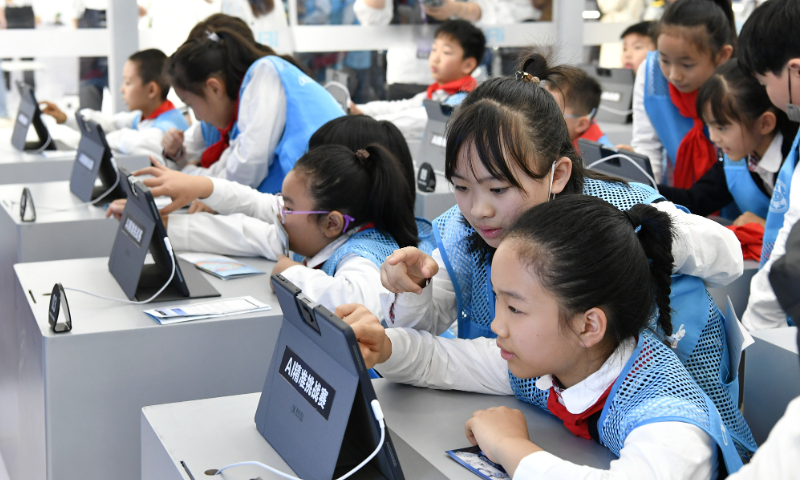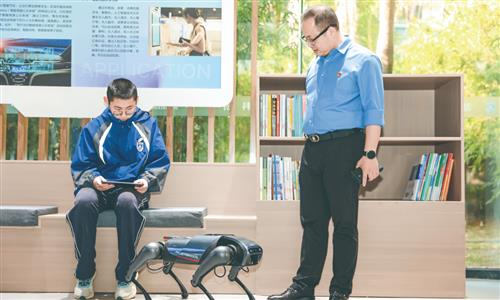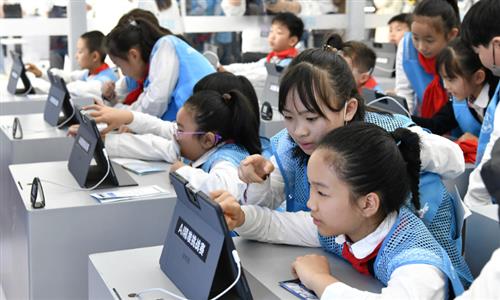
Children are experiencing intelligent teaching devices in Hefei, Anhui Province on October 24, 2023. Photo: VCG
The cultivation of skilled talent in artificial intelligence (AI) applications is more important than ever amid the rapid development of new productive forces. In light of this, a political advisor has recommended that China should establish a nationwide teaching platform for generative AI resources to bridge the gap between urban and rural areas.
"Educational resources for generative AI, such as high-quality courses, experienced teachers, and advanced technology, are mainly concentrated in top universities and urban areas, leading to students in rural and remote areas being unable to access equal educational opportunities," Zhang Yunquan, a member of the Chinese People's Political Consultative Conference (CPPCC) National Committee, wrote in his proposal.
By 2022, China had made significant achievements in the field of AI education, with 438 universities offering related majors and 68 research centers established, laying a solid foundation for cultivating new talent. However, there are still problems in the education industry waiting to be addressed, Zhang noted in his proposal, which was obtained by the Global Times.
To address the uneven distribution of educational resources between urban and rural areas, Zhang suggested optimizing resource allocation through national-level macro planning, with special attention to remote and rural areas to ensure that these areas also have access to necessary resources.
He mentioned that a teaching resource sharing platform can be established, allowing schools to share teaching content and computing resources with schools located in rural areas.
Due to the rapid development of AI, the content and teaching methods of school courses may struggle to keep up with the latest technological developments. Regarding this challenge, Zhang proposed establishing an initiative to encourage domestic and international schools and enterprises to develop innovative courses and teaching techniques for AI.
Chinese schools have been making efforts to reform their curriculum to include AI education, which is in response to its rapid development. AI and big data management have become popular new majors in Chinese universities, according to educational experts.
To better prepare students for future job markets, Zhang also suggested that the Ministry of Education (MOE) could establish AI training bases where students can practice their skills before entering the job market.
In an effort to promote the development of AI education, China's MOE recently announced a list of 184 primary and secondary schools across the country selected as AI education bases. The move aims to further focus on exploring innovative new concepts, models and solutions in AI education through pilot programs, creating exemplary cases and experiences that can be shared, the MOE said.
The ministry can also establish innovative awards to acknowledge teachers who effectively utilize AI technology in their teaching and research. These awards can be integrated into the teachers' promotion and recognition systems, Zhang suggested.
Global Times



